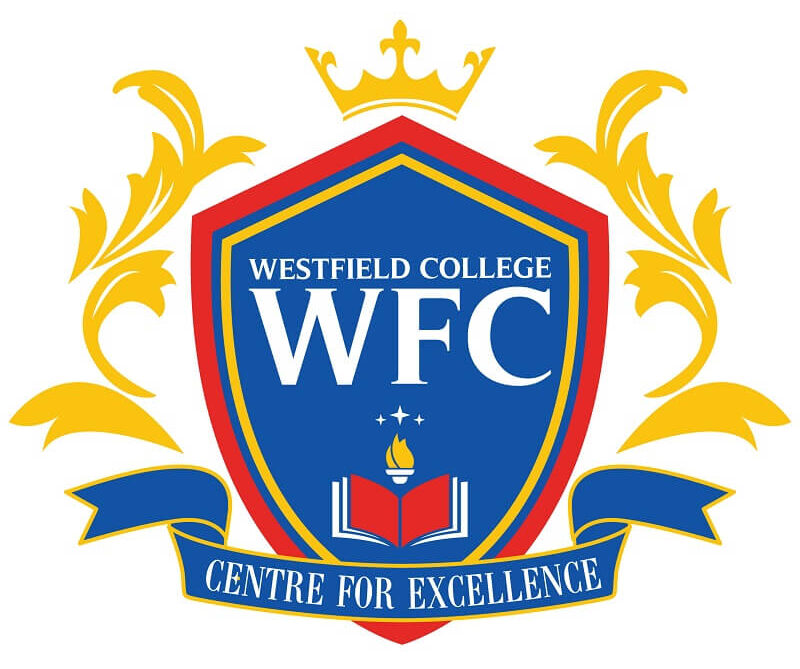Communication in Health and Social Care. Great Course. Very Easy to Understand
PGCE Primary Initial Teacher Education with QTS

PGCE Primary Initial Teacher Education with QTS
Overview:
Have you always wanted to teach in a primary school and make a real and positive impact on children’s lives? If you are a graduate with a passion for innovative learning and teaching then this PGCE course is for you. This one year course leads to the award of qualified teacher status.
You will study in both university and primary schools to inspire learners to achieve the four purposes of the Curriculum for Wales.
You will work in partnership with schools that have been selected for their excellent provision and high-quality mentoring of student teachers. You will be supported to develop your skills in research and inquiry, critical reflection, digital technology, pedagogy and the Welsh language as you build your own, unique teacher identity.
The deadline for applications for September 2024 was 31st January 2024. We are no longer accepting applications for September 2024 entry.
Online application form
Information requested on this form should be completed in as much detail in order to process your application successfully. All fields marked * must be completed.
Apply Now
Entry Requirements
Entry criteria detail typical offers, but USW considers all applications on an individual basis, which means that we could make offers based on qualifications, personal profile and experience. The exception to this, is that Welsh Government require that all candidates have a minimum GCSE grade C/grade 4 (or equivalent) in English Language, Mathematics and Science at the point of entry on any ITE course. Combinations of qualifications are acceptable and other qualifications not listed may also be acceptable.
Application Deadline
The deadline for applications for September 2024 was 31st January 2024. We are no longer accepting applications for September 2024 entry.
Entry to the PGCE programme is conditional on:
An Honours degree in an area related to primary education, of at least 2:2 classification; or any honours degree of at least 2:2 classification where an A level grade C or above (or equivalent) has been obtained in a primary curriculum subject area.
Selection based on a successful interview.
Other
GCSEs: The University normally requires a minimum 5 GCSEs including Mathematics and English Language at Grade C or above (for ITE courses) and Science at Grade C.
If you do not have the GCSE grade C requirements in Mathematics, English Language and/or Science, but you hold a GCSE grade D, then you are able to gain equivalency of a grade C by successfully completing a module in Mathematics, English and/or Science. For further information, please visit this link
You can view the accepted Equivalencies to GCSE English Language or Welsh Language and Mathematics C grade for entry to Initial Teacher Training Education here.
Personal statement
When you are writing your personal statement you should aim to achieve the following:
- Demonstrate an insight and clear understanding of your chosen profession and how you are suited to this course
- Provide evidence that shows you have a clear understanding of the course you are applying for
- Include details of your motivation and inspiration for your chosen course and profession
- Demonstrate an understanding/commitment to the values, qualities, and characteristics expected of the profession
- Include details that are relevant to your application: e.g. previous training or transferable skills
Interview
An interview is required for this course. Those applying will be provided with further details if successful at the initial selection stage. Those interviewed must demonstrate an aptitude for teaching as well as their intellectual abilities through a process of group discussion and individual questions. Those applying will be required to pass literacy and numeracy tests and must demonstrate appropriate knowledge of digital competency.
All entrants will have met the requirements of the Education Health Standards prior to commencing the course. Statutory obligations under the Disability Discrimination Act (DDA) will be followed and reasonable adjustments put in place to ensure applicants are not discriminated against in the application process or whilst on the ITE course. Staff members will meet the statutory requirements placed on the institution by the disability equity duty.
An Enhanced Disclosure and Barring Service (DBS) check on the Child Workforce and Child Barring List and subscription to the DBS Update Service is required – details will be sent to applicants at the appropriate time.
Relevant work experience
In addition to the formal qualifications, work experience with children in a school setting is normally required. This can be, for example, full or part-time paid or voluntary work in an educational setting.
This work experience should be equivalent to at least ten days and must normally be completed before an application is submitted. The student will be required to explain how they have met this requirement in their personal statement. The candidate may be asked to submit an additional reference relating to their work experience confirming they have completed the required experience in a school setting.
WHAT YOU WILL STUDY
The content of the course is arranged into two core modules that run throughout the three terms of the one-year course.
Curriculum and school experience – embedding the pedagogical principles. 60 credits at level 6
This module has a focus on subject study knowledge and practical experience. Through a combination of university-based lectures and school-based experiences, the module supports student teachers to develop and reflect as resilient, lifelong learners, purposefully engaged in their own professional learning, development and well-being. The integration of lectures, seminars and tutorials have been carefully aligned to corresponding school experiences, supporting thorough theory to practice application.
Student teachers critically evaluate evidence-informed practice through enquiry, to raise learner attainment. They develop, consolidate and refine their subject knowledge, understanding and skills in relation to their roles and responsibilities during school experience and contribute to the achievement of the descriptors for Qualified Teacher Status as identified in the Professional Standards for Teaching and Leadership. A range of assessment strategies is used to measure competencies including the effective use of digital technology and Welsh language development to support and enhance learning and teaching.
Reflective practice – developing research and enquiry to become agents of change. 60 credits at level 7
This module fully supports the level 6 module by embedding and consolidating pedagogical principles and supporting further enquiry, critical reflection and evaluation through specific research projects. A year-long reflective journal scaffolds the research and enquiry skills of the student teachers. Research methodologies are explored and developed through a school-based project linking to a live school development plan, ensuring accountability within the school environment.
Critical theoretical knowledge and data analysis are applied to inform action enquiry and to develop the skills necessary to become lifelong teacher enquirers. In addition to developing individual research, assessment opportunities are planned throughout the module to assess student teachers’ ability to critically explore and reflect upon research articles linked to pedagogical practices of differentiation, behaviour and assessment for learning (for
Teaching
A blended learning approach is utilised to provide student teachers with a range of flexible learning opportunities and to highlight effective pedagogical principles through modelling the impact of a range of approaches.
Lectures draw your attention to current research, curriculum reform and development and pedagogical approaches. Specific subject study practical sessions support student teachers to develop in the Areas of Learning and Experience.
Tutorials provide opportunities for academic and school-based discussion and personal reflection.
The directed study enables student teachers to prepare appropriately for assessments; to refine their knowledge and understanding by investigating a variety of resources for skills development and intellectual enhancement.
Independent Learning encourages student teachers to develop further subject knowledge, improve research skills and take responsibility for the development of personal targets. Student teachers make use of the excellent facilities including simulated learning opportunities.
School Experience is structured into blocks of intensive learning and practice throughout the programme. This supports student teachers to benefit from structured opportunities to work on specific areas of their practice through the ‘meshing’ of theory, research and practice. Learning is focused, rather than dispersed;
In each block of School Experience, student teachers teach, observed by a qualified member of school staff, their lecturer, or both. Teaching starts with small group teaching, or teaching of a short activity to larger groups, building to teaching whole lessons and then sequences of lessons.
Student teachers meet weekly with mentors to discuss their own learning and to learn about wider school-related professional duties.
Assessment
Assessment includes written academic assignments, journal article critiques, presentations, a close-to-practice project which is presented as an e-book and a practical digital assessment. Progress will be assessed throughout the year towards the Professional Standards for Teaching and Leadership for the award of Qualified Teacher Status (QTS).
COURSE DETAILS
Accreditations
Accredited (subject to conditions) by The Education Workforce Council (EWC)
Placements
Watch this short video for more information on how placements can benefit you and your studies.(Opens in a new tab)
Facilities
On campus, you will learn in an environment that fully prepares you for the world of work. We have specialist classrooms which simulate primary school settings and flexible digital spaces which will provide you with authentic learning opportunities. These learning spaces are designed to simulate the school environment, enabling you to develop confidence for the workplace in realistic settings.
We regularly revalidate courses for quality assurance and enhancement
At USW, we regularly review our courses in response to changing patterns of employment and skills demand to ensure we offer learning designed to reflect today’s student needs and tomorrow’s employer demands.
If during a review process course content is significantly changed, we’ll write to inform you and talk you through the changes for the coming year. But whatever the outcome, we aim to equip our students with the skillset and the mindset to succeed whatever tomorrow may bring. Your future, future-proofed.
Additional Costs
As a student of USW, you’ll have access to lots of free resources to support your study and learning, such as textbooks, publications, online journals, laptops, and plenty of remote-access resources. Whilst in most cases these resources are more than sufficient in supporting you with completing your course, additional costs, both obligatory and optional, may be required or requested for the likes of travel, memberships, experience days, stationery, printing, or equipment.
CAREERS
Upon graduation, you will be awarded Qualified Teacher Status which means you are qualified to teach in a primary school in a national or international setting.
The majority of graduates secure teaching posts or careers that require an understanding of learning and teaching such as education roles in libraries, museums, private sector organisations.
How does the course prepare me for employment?
You will undertake school experiences across the course where you will work with school mentors and university tutors to develop your teaching skills and make progress towards achieving qualified teacher status (QTS). These experiences will be spent working with different age groups across a diverse range of primary school settings within Communities of Learning to ensure that you have experience of teaching across a range of schools and age ranges.
You will also be taught and supported by a range of experienced colleagues in our partnership schools, based in South East Wales.
Successful completion of the course will equip you with qualified teacher status (QTS) and you will be eligible to register as a primary teacher with the Education Workforce Council (EWC). You will be eligible to teach in Wales , the UK and internationally.
Fees
Full time
- 12 to 18 months
£7,250
You’ll study 9 modules in total (approx. 37 hrs/week).
Part time option one
- 12 to 18 months
£4,250
You’ll study 6 modules per year (approx. 25 hrs/week).
Part time option two
- 12 to 18 months
£5,500
Have a question about our professional qualifications?

Contact us about our professional qualifications
If you have any questions about our professional qualifications in finance and banking, please contact our customer services team.
Call us
- +44 (0) 203 771 5653
- admissions@westfieldcollege.co.uk
What Our Students Have To Say
Hi, I recently started Access to Higher Education Diploma (Nursing and Midwifery) course with Westfield College.
--Komal Kiran Galaria
DesignerMy experience with Westfield College is great. The supervisor and the admin team are proactive and efficient.

